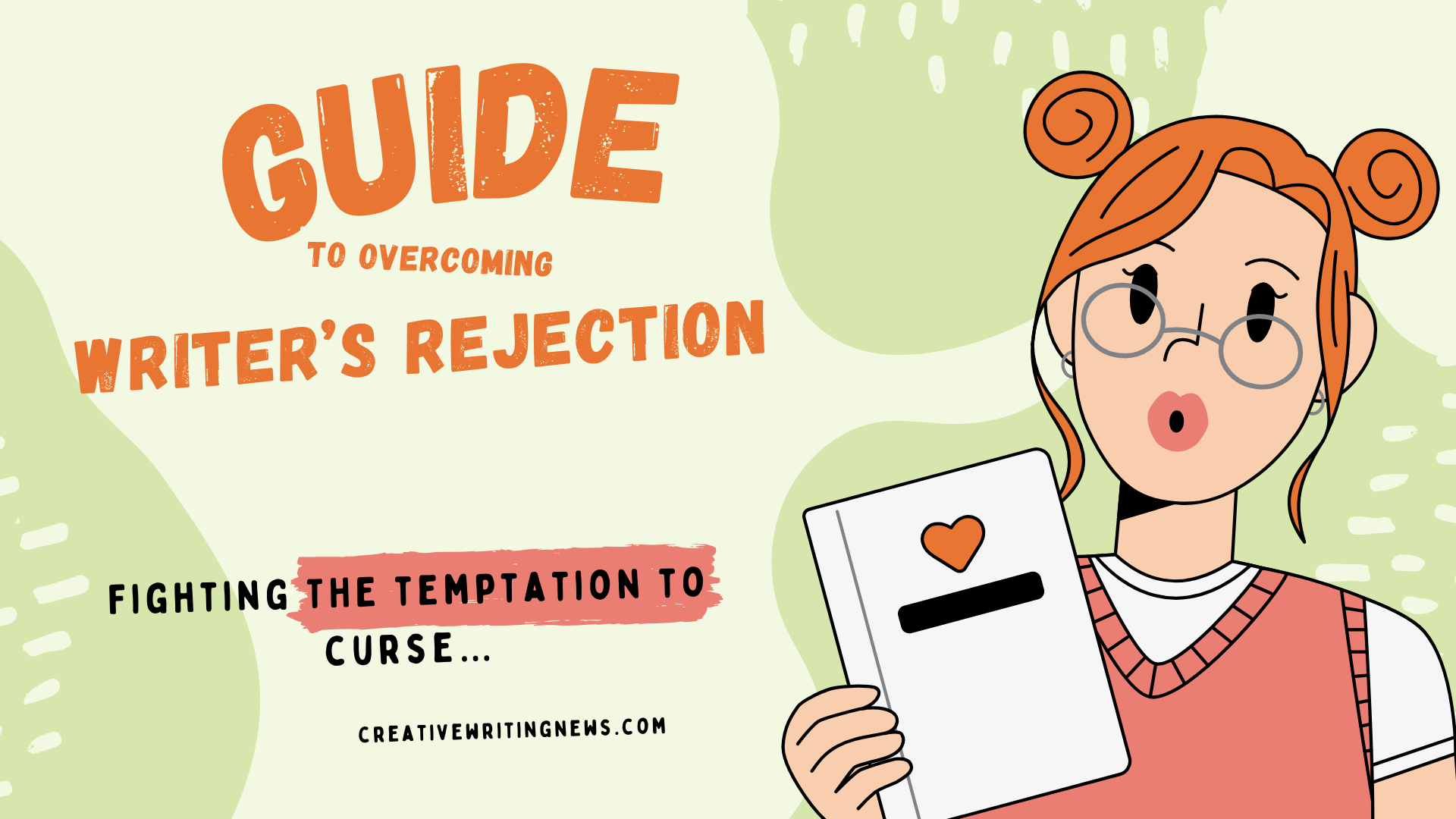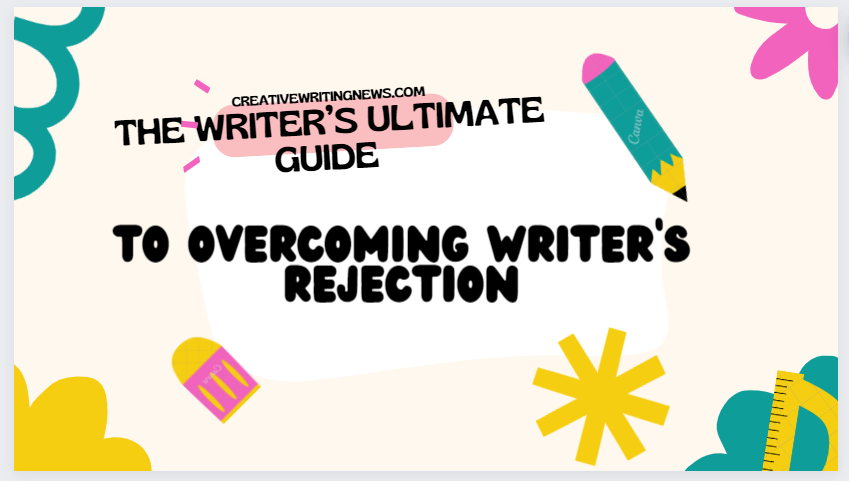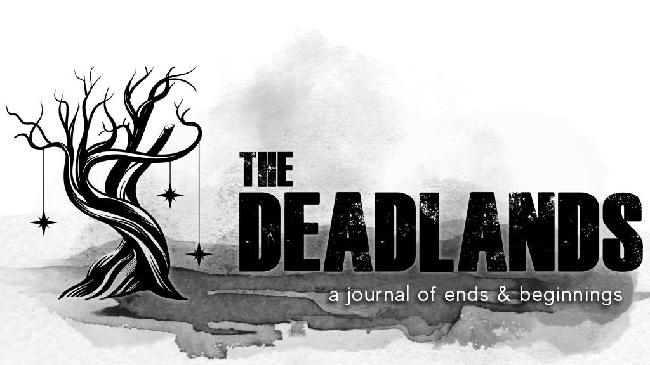Handle Rejection In Publishing Like A Pro: The Ultimate Guide To Sending, Receiving and Ignoring Writer’s Rejection.
Wondering how to handle rejection in publishing?
First, imagine the portrait of the writer as Job.
Alive today, Job would be a combination of Musk, Dangote, Gates, Otedola and Elumelu. Yes, he would have all their children too. Job had a nice family, his prosperity was scaffolding. A talented writer, with publication credits here and there has wealth, a neat scaffold. Editors who have said yes to your work, strangers who have validated your talent.
No need to figure out how to handle rejection from literary magazines and publishers.
Then one day, The Moby Dick review, with a ginger-haired editor (if you care to Google him) sends you a polite note that contains a nice assortment of the words:
- “fit”
- “not” and
- “submit again.”
That’s your temptation to curse…
The thing to remember when you get an acceptance is the number of writers who had to be turned away to make it happen for you. If you forget to note this, your ego concretizes, your expectation attains a solid foundation. This is all nice.
Until the next writing rejection shatters your brick house.
But figuring out how to handle rejection in publishing, requires understanding the psychology of acceptance.
The idea of being published here and there is to accrete a sort of reputation, brick by brick, to line up your yeses, as if to say, look, these brilliant people take me seriously. But the fact that a selection of people take you seriously is not a warning to other people to take you seriously, basing their decision on the decision of those who had previously published you, who, by the way, had not consulted this latter group while choosing to publish you. And this does not, by any metric, reduce their competence. Nor should you imply it.
Publishing requires a lot of patience. Those two Ps have an enduring relationship. But, curiously, so does rejection and release. Some writers find calm in lashing out after receiving a rejection for their polished submissions. It may even be a certain kind of healthy to do this, but turning that hose in the direction of an editor is not the sensible option.
Some editors say that some rejections hurt them like it hurt the writer. Not to mention, many of your favorite literary magazine editors have to submit their stuff to other literary magazine editors who have to submit their own stuff to other literary magazine editors. Rejection, then, is a wine bottle passed around. We’re all getting drunk, but that’s no excuse to break the bottle. Everyone will snap out of their states and collapse on you like a Lagos building.
I understand the itch to understand why your stuff was rejected. I understand, even, the urge to assign this ugly and urgent task to the editor. But it does no good. This query has never changed a rejection into an acceptance. Not once. If anything, depending on how you ask, it marks you as a troublesome writer.
And because you can’t determine how the tone of your query is received on the other end (communication being a matter of how the decoder receives it) it is almost always safer to say nothing. If you have the grace, say thank you for getting back and leave it at that. Besides, it smacks of a well-fed naivety to not understand the quality of your submission, or its fit for the venue. If you have to ask them to tell you, you’re never going to publish there.
And, really, if one views acceptance as the thing that happens for you at the cost of rejection to other people one doesn’t know, and rejection as the thing that happens to you at the cost of acceptance for other writers one doesn’t know, it is easier to shrug it off and carry on. As everybody does.
And, really, if you must lash out therapeutically, arrange for a sigidi-type statue you can punch. Have it installed right on your desk, strategically behind your computer. Hopefully your hands get stuck there long enough for the rejection email to thin out in your chest.
Finally, finding wise ways to handle rejection in publishing is a survival strategy.
Like Job’s losses, writing rejections can be incredibly painful and unfathomable. But, it is an unavoidable, somewhat necessary fate that must befall us all. Even successful writers like Stephen King and J.K Rawlings received a ton of them.
Giving Up Isn’t The Best Way To Handle Rejection From Publishing Gatekeepers.
Sometimes, rejection is a sign that you need to:
- Go on writing and revising your work: Get feedback from trusted writers and readers and revise your work accordingly.
- Submit elsewhere: Sometimes, rejection isn’ t a sign that your work is flawed. It might just be that the editors don’t have room for all the specular work they have received.
An editor once made an analogy of the selection process being very akin to going into a mall to get clothes;. There’s a high chance you’ll find clothes beautiful but oversized for you. Or you will find a furry coat when what you’re looking for is not a furry one. Otherwise, you will find spectacular high-heeled shoes when you can’t buy anymore because you already have a lot of high-heels. In other words, you will have to pass on many, many clothes because they won’t fit the occasion for why you’ve come shopping, or because you simply can’t afford them.
What’s your perception of writing rejections? How do you fight or make your peace with the “not a good fit” and “submit again” emails? Leave your tips for handling writer’s rejections below in the comment’s section.









Fine piece. The hilarity!
Put just a tiny amount of cash in and let it grow until the is a young person. He
was unable conquer his nerves and the highest play of McDowell.
However the backdrop may be an essential feature with the photo.
Absolutely poignant and hilarious.